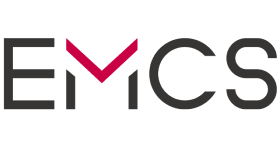As various business face heavily reduced revenues or zero revenues, managing cash flow is even more important than ever.
What must businesses operating in this crisis period do to defend their cash flow, now more than ever before?
1. Watch any credit your are extending EXTREMELY closely:
Do you know if any of your customers are in trouble and might be unable to pay for the goods and services you deliver? If you manufacture a product and want to sell it to someone outside your borders, you typically require a letter of credit from a prime bank that proves the buyer can pay. Ensuring you understand the financial risks of your key customers is a critical consideration in times like these. That’s why it’s important to improve the performance of your collection processes in this period. Focus on customer-specific payment performance and identify companies that may be changing their payment practices. Also, get the basics right, such as timely and accurate invoicing. Any errors in your billing process can lead to costly delays in receiving payment.
2. Ensure your own financing remains available – Explore all options:
In these circumstances, don’t assume the financing options you previously had available to you will continue to be available. Undertake scenario planning to better understand how much cash you’ll need and for how long. Use this opportunity to actively engage with your financing partners/sources to ensure your available lines of credit remain available, and to explore new or additional options should you require them
3. Focus on your working capital:
Generally businesses spend their days thinking about operations and don’t pay much attention to finance and treasury issues. More often than not, inventory levels and other critical business parameters are driven by customer service requirements and operational capabilities, not financial
constraints. However in these times of crises this reasoning HAS to be reversed. Working capital will be the company’s primary constraint on inventory and supply chain.
4. Capital investment Plans – Time to revisit them:
Consider what’s really necessary for the near term. What capital investments can be postponed until the situation improves? What capital investments should be reconsidered? What capital investments are required to position for the rebound and for creating competitive advantage?
5. Seek to reduce your variable costs:
Reducing your variable costs is often a quicker way to immediately reduce your cash outflows than focusing on your fixed costs. On one hand, there are the typical variable cost-reduction initiatives, such as imposing travel bans imposing hiring freezes, and placing restrictions on discretionary spend like entertainment and training.
When labour is a significant cost line in your business, consider avenues that might help reduce spend to avoid getting to a situation where layoffs are required. Encourage employees to take available leave balances to reduce liabilities on the balance sheet and if necessary, consider offering voluntary, or even involuntary, leave without pay to preserve cash.
6. Improve your inventory management:
Balancing the demands for more buffer inventory and managing cash flow is a hard task. Companies that still use simplistic approaches to inventory management might be able to do a quick assessment and find some immediate opportunities to drive down inventory. However, many companies are likely to find that significant inventory cuts have an adverse effect on customer service and production. Sustainable savings will most likely require fundamental improvements in end-to-end supply chain inventory visibility, demand planning, inventory and safety stock policies, production planning and scheduling, lead-time reductions and order levels to be rationalised.
7. Extend payables….WISELY!:
One way to preserve working capital is to take longer to pay your suppliers. Some companies may unilaterally decide to delay their payments and force the extension on their suppliers. Of course, such an approach is likely to damage your supply relationships. It is far better to working with suppliers to establish an agreement that both of you can live with. There might even be situations where you need to accelerate payables for a critical supplier that is on the brink of failure in order to preserve the integrity of your supply chain and prevent a critical disruption.
8. Consider alternate financing options:
Depending on what your cash flow scenario planning reveals, you may also need to consider tactics to generate faster cash flow from your receivables. Aggressive techniques such as factoring your receivables, although relatively expensive, may be your best option to improve cash flow quickly. You could also use trade financing in the case of key suppliers who are not extending you any credit at this period.
9. Consider alternative revenue streams:
If your scenario planning is showing pressure on your continued revenue streams, consider ways you could temporarily or maybe even permanently replace that revenue. For example, if your primary markets are international, how might you pivot to domestic markets? If you have assets you use to generate revenue, how could you think differently about how those assets are used to generate alternate revenue sources?
10. Have a holistic view:
As you are fully focused on maximising working capital, make sure you do not forget to have a holistic view of your business and the entire ecosystem it operates in. Thus, it’s important to carefully consider the upstream and downstream impact of your actions. Make sure to conduct proper risk assessments on critical clients or suppliers to identify potential issues from your actions before they turn into big problems.
We at EMCS are working with our business clients on a constant basis not only to survive the present crisis but also to adapt to a new reality that will likely face business post COVID-19. We would be willing to have a discussion with you to discuss how we can help. Feel free to drop an email to silvan.mifsud@emcs.com.mt
Article written by Silvan Mifsud, Director EMCS Ltd











